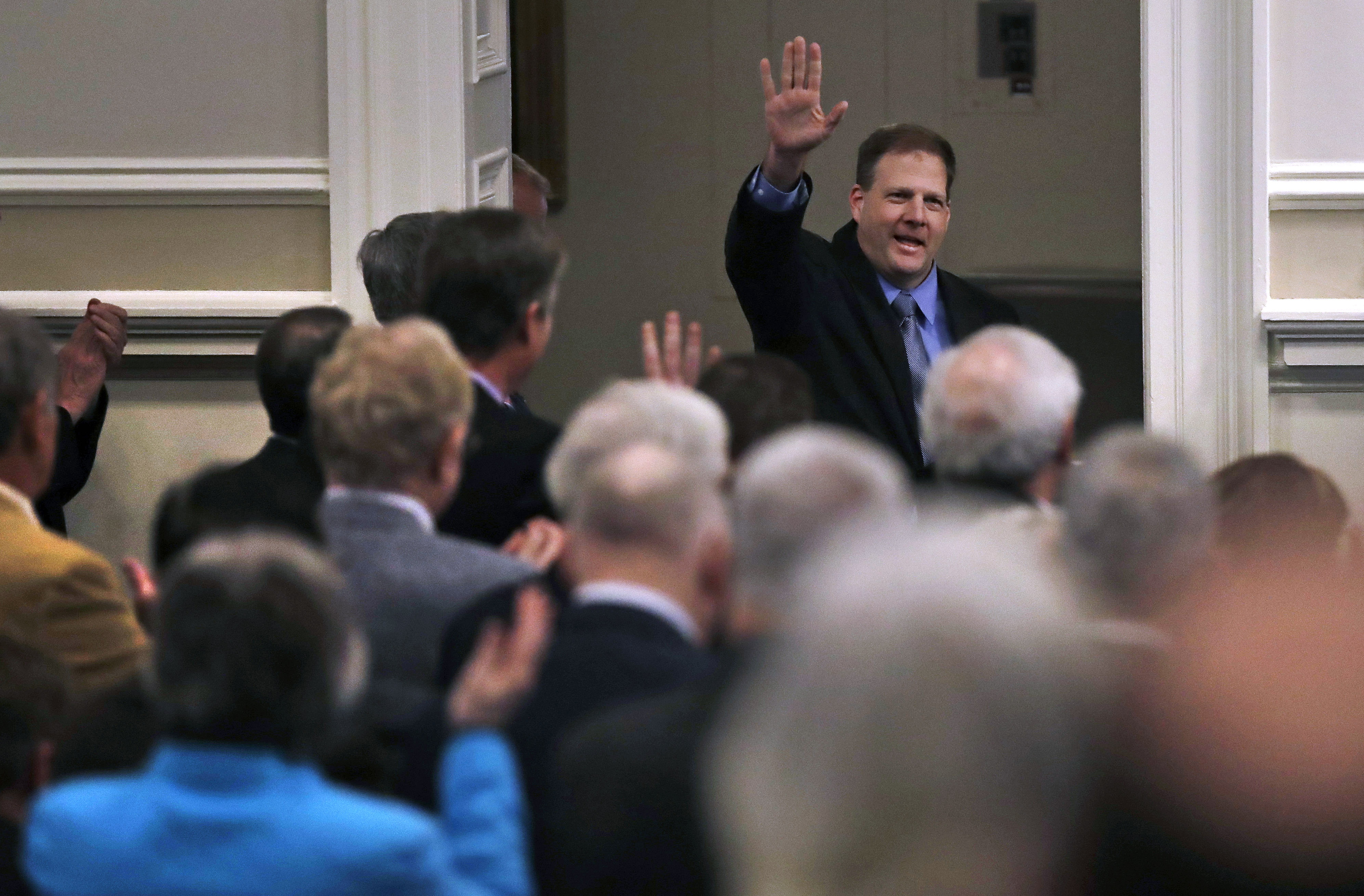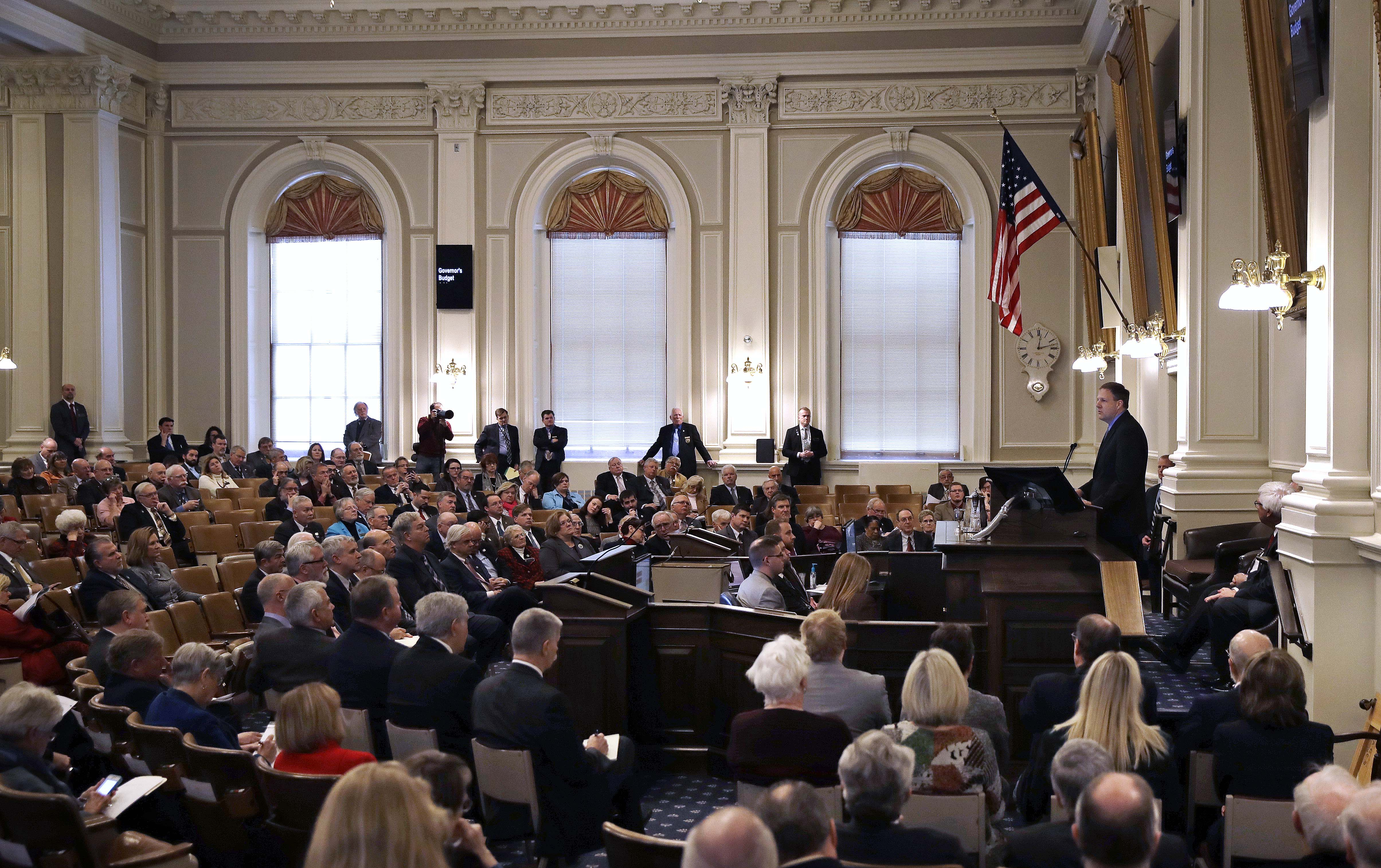Senate Passes State Budget, But There Could Be Trouble Ahead in the House

In a 10-hour marathon session, the Republican-led Senate approved an $11.8 billion state budget, defeating all Democratic attempts to increase spending in mental health, social services, and education. The budget ultimately passed on a 14-9 party line vote.
The spending plan changed very little from what the Senate Finance Committee put forward, but concerns and praise for the budget fell on party lines. Republicans applauded the money going to help the mental health crisis in the state, but Democrats disagree, saying the budget doesn’t fund critical social services.
Some of the budget’s highlights include expanding mental health treatment beds, creating a new student scholarship program, and cutting the state’s business taxes.
“What we’ve developed is a budget that serves the citizens of New Hampshire, but lives within our means,” said Senate Finance Committee Chairman Gary Daniels. “I believe we have achieved an appropriate balance between the two and we’ve done a lot to get us to this point.”
Democrats put forward more than two dozen amendments to increase funding for child protective services, adding nurses to New Hampshire Hospital, making Medicaid expansion permanent, funding full-day kindergarten, and increasing the budget for the state university system. They argue that the state can spend an additional $45 million since the budget’s revenue estimates are too low.
“It creates an artificial, trumped-up surplus to sell the biggest Republican ruse of all, that slashing taxes for the rich will grow revenues and improve lives for poor, middle-class people,” said Senate Minority Leader Jeff Woodburn.
“I recognize and respect my colleagues who think it’s not enough or some would suggest even never enough, but on the other hand, Mr. President, you know there are people like me who are always very concerned that maybe it’s always too much,” responded Sen. Andy Sanborn, R-Bedford.
On a few amendments, a couple of GOP senators sided with Democrats, but it was not enough for the measure to be adopted. For example, Republican Sens. Sanborn and Ruth Ward of Stoddard voted with Democrats to roll back proposed health care premium increases for state retirees, but it failed on a 12-11 vote. In another 12-11 vote, GOP Sens. Regina Birdsell of Hampstead and Harold French of Franklin voted with Democrats to add $6 million in additional education aid grants to public schools, but that measure also failed.
Heated debate between the two parties occurred, as expected, on the business tax cuts in the budget blueprint. An old debate flared up over abortion policy, though, when an eleventh-hour Republican amendment was introduced to block state and federal funds from going to centers that offer abortion services.
“This is about controlling women’s health choices, plain and simple, and this is about merging church and state,” said Sen. Martha Hennessy, D-Hanover.
Tensions remained high as Sen. Kevin Avard, R-Nashua, raised his voice in response to Hennessy.
“Forcing people to violate their conscience with their tax dollars, that is hateful,” he said. “I challenge anyone in here to tell me in any constitution where I am forced to pay for somebody’s abortion, show it to me.”
Hennessy said the amendment was an attack on her rights, while Republicans argue it’s just codifying what’s already happening.
“Could you imagine the men in this room if we snuck in some amendment about how the government shouldn’t pay for Viagra?” Hennessey said.
The amendment ultimately failed, 17-6. Democrats also tried unsuccessfully to eliminate a reference to the so-called Hyde Amendment that outlaws spending public dollars on abortions, in order to prevent any future cuts to Planned Parenthood.
With the Senate’s approval, the biennium budget is sent to the GOP-led House. Yet, there are some concerns from conservatives who are threatening to oppose the plan because it spends too much. The chamber is likely to call for a conference committee of senators and representatives to compromise on various issues within the budget, despite the House failing to pass their own plan earlier this year.
Red flags that House conservatives were not entirely pleased with the budget were first raised during a Tuesday budget information session.
“I’m opposed to this budget as it currently stands, and I am going to work to defeat it,” said Rep. James McConnell, R-North Swanzey, who is also a member of the House Freedom Caucus.
The House Freedom Caucus helped sink the chamber’s budget this year, making it the first time since at least 1969 that the House failed to produce a spending plan.
Yet, it’s still too early to tell if the caucus will try to defeat the Senate budget. In an interview with New Hampshire Public Radio, Rep. J.R. Hoell, R-Dunbarton, and co-chair of the House Freedom Caucus, said the Senate proposal is an improvement.
“They’ve made some great changes in terms of improvements — cutting the business taxes is a good example, funding the charter schools is another good example, so there are positive steps forward,” he said. “Some of us are still concerned that it spends more than we’re comfortable with and that’s…put us in a stalemate almost. The overall increase in government size is bigger than a number of us are conformable with.”
Hoell sent an email to caucus members after a meeting this week, saying the group is hopeful that their needs will be met in the conference committee.
Republicans only hold a slim majority in the House and a handful of defections could defeat the budget if Democrats also oppose it. They have largely criticized the GOP-budget, but some could side with Republicans out of fear of not getting anything passed.
The budget process needs to be over by June 30 before the start of the next fiscal year. If a budget is not passed by then, lawmakers would need to pass a continuing resolution, which would fund the government at its current levels until a full budget is passed.
Sign up for NH Journal’s must-read morning political newsletter.






